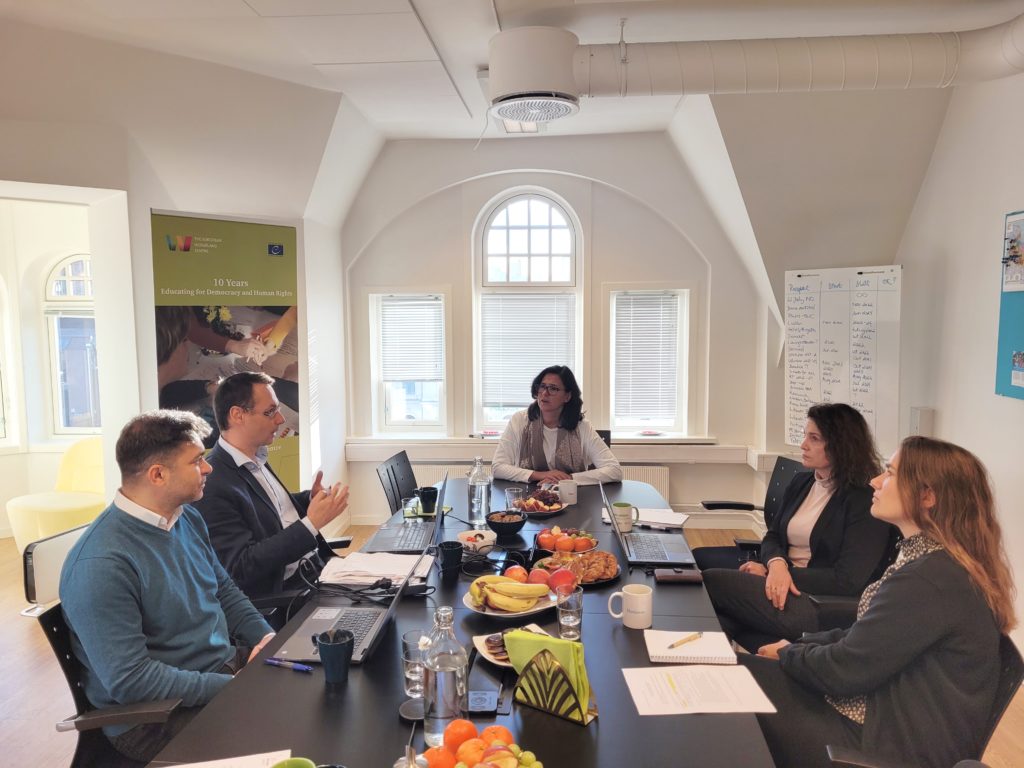Aiming to increase the quality of education in the country, particularly addressing the situation of Roma children and youth, EWC is working on a new project to strengthen the competences of teachers, school leaders and NGOs to create an inclusive learning environment in schools in all regions of Slovakia.
Slovakia is struggling with growing disparities between and within regions, with the least developed districts having a high share of Roma population. As of one Europe’s most marginalized minorities, the Roma community face discrimination and exclusion, including access to basic rights such as education, healthcare and housing. National policies have been put in place to address these challenges, and the promoting inclusive schools project aims to support these efforts.
Building on previous work with inclusion in Slovak schools, EWC is again working with the National Institute for Education (SPU) to promote inclusive education models in the country. Aiming to increase the school participation and improve the educational outcomes of Roma children and youth, the project will apply a whole school approach to education.
To learn more about the situation in Slovakia, we interviewed Jozef Facuna, project manager at the National Institute of Education, to hear what they describe as an inclusive Slovak school and get their thoughts on how the new project will contribute to this vision.

1. What would you consider the main challenges for inclusion in Slovakian schools?
The main challenges to ensure inclusive education for Roma students in Slovakian schools are threefold. Firstly, teachers need to be prepared to work with this student group. This preparation should include education that takes into account the cultural and social features that are specific to the Roma community. One example is language, a substantial number of these students speak a different language than the majority population. Secondly, we need to make sure that we have textbooks that take into account these cultural and social features. Finally, there is a need for a network of schools that serve as a place of sharing the educational needs of students from the Roma community. Based on these needs we need to regularly adjust and update the school education programs.
2.What is being done to support inclusion at the national level?
This is recognized at the policy level in Slovakia, and the need to support students with different educational needs is reflected in the national strategy, aiming to help schools implement inclusive education in practice.
3. If you were to describe an inclusive Slovakian School, what would be its main characteristics?
I believe that an inclusive Slovak school should be modern, safe and open to everyone. It should give its students the latest knowledge presented through innovative educational methods. The inclusive school should reflect the various needs of its students, such as different cultural and social needs. Importantly, the inclusive school collaborates with parents, the local community, NGO´s, community centers and other stakeholders.
4. How do you believe the project will promote inclusion in Slovakian schools?
Through the free of charge educational trainings, we want to assist teachers to implement measures that improve inclusion of Roma students. These measures will focus on intercultural competences, human rights, democratic citizenship as well as Roma culture and language. Other than trainings, the project will also provide free learning resources for teachers.
5. What does EWC contribute with in the project and how would you describe the centre as a partner?
EWC is responsible for the issues related to education for democratic citizenship, human rights and intercultural understanding. Together with the National Institute of Education, EWC will implement to main project activities – the Slovak Academy training of trainers as well as a training for teachers visiting Oslo for a study visit in 2022. As a well-known actor in the field of education for democracy and human rights, EWC is an important international partner. Thanks to EWC we have the needed expertise working on this project and the partnership lets us strengthen the bilateral relations with Norway.
6. If you were to suggest some lessons learned in Slovakia for other European schools, what would they be?
Every country has its own unique circumstances, but I think that the trainings programs, training materials and textbooks can serve as examples of good practices for how to support intercultural understanding, the development of bilingual publications and methodology for history of cultures. Based on their specific needs, schools in other European countries can use and adjust what we have developed within the project.